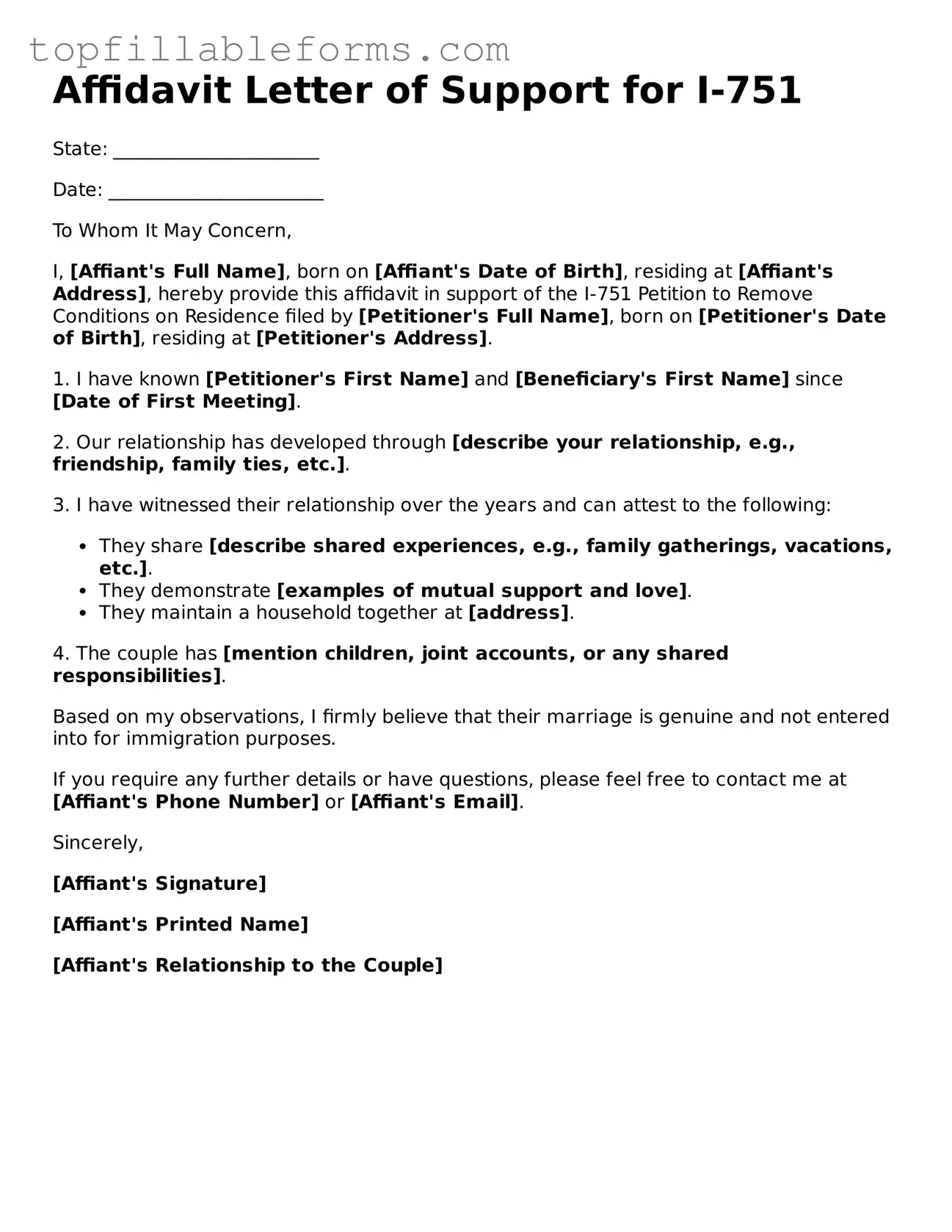Free Affidavit Letter of Support for I-751 Form
The Affidavit Letter of Support for the I-751 form is a document that helps individuals seeking to remove the conditions on their permanent resident status. This letter serves as a testimonial from friends, family, or other acquaintances, affirming the authenticity of the marriage. It plays a crucial role in demonstrating the legitimacy of the relationship to immigration authorities.
Open Affidavit Letter of Support for I-751 Editor Here

Free Affidavit Letter of Support for I-751 Form
Open Affidavit Letter of Support for I-751 Editor Here
Finish the form now and be done
Finish your Affidavit Letter of Support for I-751 online by editing, saving, and downloading fast.
Open Affidavit Letter of Support for I-751 Editor Here
or
▼ PDF File
